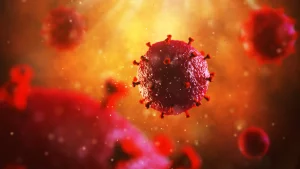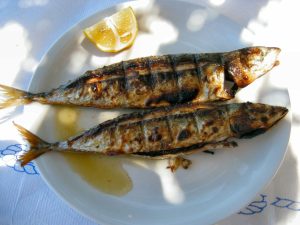Introduction In the realm of health and nutrition, conflicting information often leads to confusion, particularly regarding the consumption of fish and its potential link to cancer. With numerous studies and opinions circulating, it’s crucial to delve into the subject matter with precision and clarity to discern the truth. This article aims to provide a comprehensive
Introduction
In the realm of health and nutrition, conflicting information often leads to confusion, particularly regarding the consumption of fish and its potential link to cancer. With numerous studies and opinions circulating, it’s crucial to delve into the subject matter with precision and clarity to discern the truth. This article aims to provide a comprehensive analysis of whether eating fish contributes to cancer risk, addressing various perspectives and shedding light on the latest research findings.
Understanding Fish Consumption and Cancer Risk
Epidemiological studies have long been instrumental in investigating the relationship between diet and cancer risk. While some studies suggest a potential association between high fish consumption and certain types of cancer, such as colorectal cancer, others have found conflicting results. For instance, a meta-analysis published in the Journal of the National Cancer Institute concluded that fish consumption was not significantly associated with overall cancer risk. However, it’s essential to consider the limitations of epidemiological studies, including potential biases and confounding factors.

Image by: yendex.com
Examining Potential Carcinogens in Fish
One concern regarding fish consumption is the presence of environmental contaminants, such as heavy metals and polychlorinated biphenyls (PCBs), which may have carcinogenic properties. These contaminants can accumulate in the fatty tissues of fish, particularly in species higher up the food chain. However, regulatory agencies often impose limits on acceptable levels of contaminants in seafood to mitigate health risks. Additionally, certain cooking methods, such as grilling or broiling, may further reduce the concentration of contaminants in fish.
Assessing the Role of Omega-3 Fatty Acids
On the flip side, fish is renowned for its high content of omega-3 fatty acids, which have been extensively studied for their potential health benefits, including cardiovascular protection and anti-inflammatory properties. Some research suggests that omega-3 fatty acids may exert protective effects against certain types of cancer, although the mechanisms are not fully understood. Incorporating fish into a balanced diet rich in omega-3s from various sources, such as flaxseeds and walnuts, may offer potential health advantages without significantly increasing cancer risk.

Image by: yendex.com
Navigating Fish Selection and Preparation
Choosing the Right Types of Fish
When it comes to minimizing potential health risks associated with fish consumption, selecting the right types of fish is paramount. Opt for varieties that are lower in mercury and other contaminants, such as salmon, trout, sardines, and mackerel. These species tend to have shorter life spans and feed lower on the food chain, resulting in lower levels of accumulated toxins. Explore More About (Foods For Cancer Treatment)
Practicing Safe Cooking Methods
In addition to making informed choices about the types of fish you consume, how you prepare and cook them can also impact their safety. Avoid high-temperature cooking methods that may promote the formation of harmful compounds, such as heterocyclic amines (HCAs) and polycyclic aromatic hydrocarbons (PAHs). Instead, opt for gentler cooking techniques like steaming, baking, or poaching to preserve the nutritional integrity of the fish while minimizing the formation of potentially carcinogenic substances.

Image by: yendex.com
| Aspect | Potential Risks | Potential Benefits |
|---|---|---|
| Environmental Contaminants | Presence of heavy metals and PCBs | Rich source of omega-3 fatty acids |
| Cancer Risk | Conflicting evidence from epidemiological studies | Protective effects of omega-3 fatty acids |
| Fish Selection | Choose low-mercury varieties like salmon, trout | Provides essential nutrients and proteins |
| Cooking Methods | Avoid high-temperature methods to reduce HCAs and PAHs | Preserve nutritional integrity of fish |
Conclusion
In conclusion, the relationship between eating fish and cancer risk is complex and multifaceted, influenced by various factors such as fish species, cooking methods, and individual susceptibility. While concerns about environmental contaminants exist, particularly in certain types of fish, the potential health benefits of consuming omega-3 fatty acids cannot be overlooked. By making informed choices about the types of fish you consume and adopting safe cooking practices, you can enjoy the nutritional advantages of fish while minimizing potential risks to your health. Ultimately, maintaining a balanced diet that includes a variety of nutrient-rich foods is key to supporting overall health and well-being.
In essence, while the question “Does eating fish cause cancer?” may not have a straightforward answer, a nuanced understanding of the topic can empower individuals to make informed decisions about their dietary choices, promoting optimal health and longevity.
















